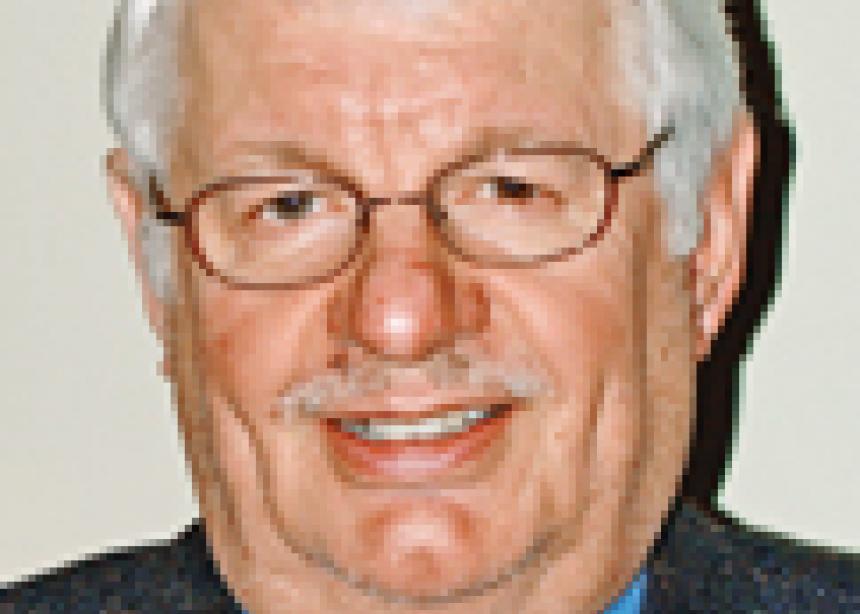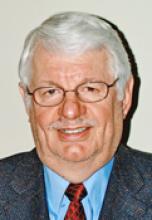James Brenneman has dropped a bombshell.
At first blush, I decided not to join the fray over Goshen College’s decision to play the American national anthem at some sporting events, considering it something of a local theological/educational debate. Like the raging healthcare reform debate across the border, I thought Canadians might be at best amused or, at worst, detached from my homeland’s unique political complexities.
That is, until I reviewed the many Canadians joining the total of 1,260 online protesters to the move, and upon an after-church conversation with a fellow congregant, Ramon Rempel, who teaches world religions, church history and philosophy at Rockway Mennonite Collegiate, Kitchener, Ont.
“We [in Canada] have always looked to the the American Mennonites to keep the separation of church and state focused and high profile in our Anabaptist theology,” he told me. “Because here in Canada, where Mennonites have become more integrated into the political system, we seem less concerned about the dangers of nationalism and the ensuing militarism.”
Not a little surprised at this observation, I looked closer at who was protesting the Goshen College action and concluded that it has hit a raw theological nerve not only among its alumni, but also in the wider binational church, globally and across denominations. Not only Mennonites—but numerous Catholics, Presbyterians, Episcopalians, Methodists, a Jew, and even an Independent Fundamentalist Baptist—signed the protest petition, but it triggered responses from across the globe: Colombia, the U.K., Australia and Kenya.
Such a theological tremor has to be grounded in deep layers of the cultural/religious terrain, I told myself. The playing of a national anthem with lyrics like “bombs bursting in air” was offensive enough to people with little loyalty to Caesar, but there had to be a root cause for this vigorous pushback.
I found it in a Jan. 15 convocation speech by Goshen president Jim Brenneman, in which he laid out the pretext for the “anthem” move. In framing the case for turning from a “culture of dissent” to one of saying “yes” (selectively) to the dominant culture, he called for a “new school of thought that adds value to our education by inviting us to become responsible constructive agents in all of the many professions available to us.”
That might be a good idea if Brenneman weren’t touching something deep within the DNA of practising Anabaptist Mennonites—a commitment to a peace witness in an increasingly militaristic and violent world, be that in the U.S. and Canada, or dictator-run countries around the globe. Non-Mennonite Christians, devoid of this DNA, are increasingly coming “home” to a 500-year-old belief system that has consistently resisted and witnessed to the heavy hand of empire.
Brenneman’s new model is not meeting with widespread approval. Instead, it has revealed the fault lines of an ongoing theological debate at the college, and in the wider church, for decades. It was telling and well-orchestrated for Brenneman to invite and applaud past Goshen president J. Lawrence Burkholder, a person he cited as seeing “engagement in and with the world ‘as a way of serving Christ by loving the neighbour with greater effectiveness and by helping to change the intellectual and political systems from within the civic and cultural institutions.’?”
By contrast, Brenneman said, “the other Goshen College school of thought, as argued by John Howard Yoder, called for a certain ‘social irresponsibility’ by Christians separated from the world in order to be witnesses to the world.” Burkholder, he posited, “thought such a clean separation from the world was illusive, if not illusory.”
This debate of some 60 years ago now is outlined with candour in American scholar Theron Schlabach’s new historical account of Guy F. Hershberger and Mennonite ethics, War, Peace and Social Conscience, in which the author highlights a rift between Hershberger and Burkholder: “Ideally, Burkholder’s critique might have helped greatly to deepen and enrich Mennonite ethical thought and deliver it from naïveté, most notably that Mennonites could be non-political.
“Hershberger, might, in turn have helped Burkholder develop a still-biblical and compelling form of pacifism for the coming generations,” Schlabach opined. “Instead, the two scholars remained sceptical of each other’s intellects and tended to fragment Mennonites’ ethical message.”
Mennonites are still fragmented on this issue. Playing the national anthem merely sets it to music.




Add new comment
Canadian Mennonite invites comments and encourages constructive discussion about our content. Actual full names (first and last) are required. Comments are moderated and may be edited. They will not appear online until approved and will be posted during business hours. Some comments may be reproduced in print.